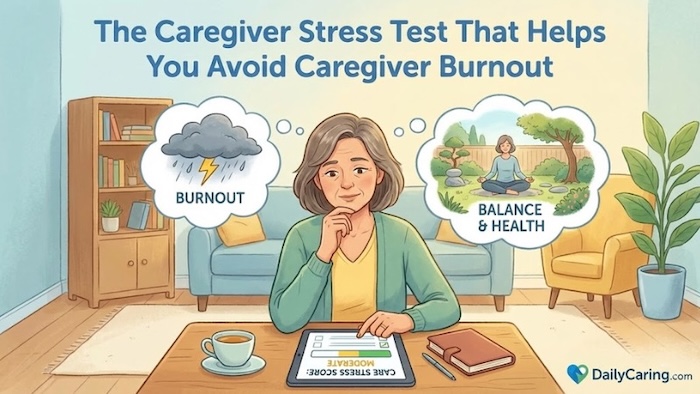If you've ever felt that your caregiving responsibilities are slowly draining your own emotional reserves, you are not alone. The constant pressure, grief, and worry can become a heavy weight, one that feels too personal or overwhelming to share with friends and family.
While we often focus on our loved one's medical needs, our own mental health is the invisible foundation that supports everything we do. When that foundation cracks, we need professional support—but cost and time often feel like insurmountable barriers.

The good news is that accessing affordable, flexible mental health care is more possible than ever. Let's explore realistic, low-cost therapy options designed to fit your life and help you rebuild your strength from the inside out.
Counseling or therapy helps you manage caregiving stress
Talking with a counselor or therapist is a shortcut to figuring out how to deal with the stress and emotional conflict that come with being a caregiver.
Instead of struggling on your own, why not talk with an expert who can offer advice and tools to help you cope with the emotional and physical challenges?
Some people roll their eyes when they hear about therapy. But don’t dismiss it so quickly.
Therapists or counselors are experts who help people deal with negative thinking, stress, depression, anxiety, significant life changes, and more.
We explain how therapy helps caregivers, share four affordable counseling sources, and show how to find a therapist in your area.
How does therapy help caregivers?
A therapist is a trained listener who won't judge you.
Their advice is unbiased, everything that’s said is confidential, and you can talk about topics you wouldn’t feel comfortable discussing with your spouse, family, or friends.
They can be invaluable as a sounding board or providing a neutral perspective when you’re struggling with tough decisions like moving your older adult to assisted living or hiring necessary in-home care against their wishes.
4 sources of affordable counseling services
1. Therapists covered by health insurance
Many large healthcare organizations offer therapy that’s covered by their insurance plans.
Talk with your doctor to get a referral, or call your health insurance provider to find out whether therapy is covered.
2. Low-cost or sliding-scale therapists
Many therapists offer low-cost or sliding-scale fees. A sliding scale means they charge people differently based on their financial situation.
Fees range from completely free to around $100. Here are a few options:
- Academy of Cognitive Therapy
- Open Path Psychotherapy Collective – affordable, in-office and online psychotherapy sessions between $30 and $60
- Network of Care – click the “Mental Health / Behavioral Health” section on the left
- U.S. Dept. of Health & Human Services health centers
3. Free, immediate mental health support
- Crisis Text Line – 24/7, get free support anytime by texting HOME to 741741 to connect with a Crisis Counselor (from the U.S.) and a live, trained Crisis Counselor receives the text and responds, all from their secure online platform.
- National Suicide Prevention Lifeline – 24/7, call 1-800-273-8255 anytime for free and confidential support for people in distress and prevention and crisis resources for you or your loved ones.
- NAMI Helpline – Monday through Friday, 10 AM – 10 PM Eastern Time, HelpLine volunteers answer questions, offer support, and provide practical next steps. Call 1-800-950-NAMI (6264), text “HelpLine” to 62640, or email helpline@nami.org
4. Free workplace Employee Assistance Programs
Many large companies offer Employee Assistance Programs (EAPs) that help you deal with life changes and other stressful situations.
If you haven’t seen or heard about these programs at your office, check with your Human Resources team. Usually, your company won’t be informed about who uses these services, so you shouldn’t be afraid to use the help.
How to find a therapist in your area
If the options above don’t work for you, there are plenty of private-pay therapists available.
Click here to visit the Psychology Today website and enter your zip code.
You’ll get a list of therapists in your area. There’s a lot of detail on each therapist, including:
- Fees
- Degrees and credentials
- Areas of practice/specialties
- Years of experience
- State license number
Final Thoughts
Investing in your emotional well-being is not a detour from your caregiving journey; it is an essential part of the path. Seeking support is a courageous and strategic act—it's how you ensure you have the strength, patience, and resilience to keep going.
These low-cost options exist to make that support accessible, reminding you that you don't have to carry this weight in silence. You are your loved one's most vital resource, and caring for your mind is how you protect that resource.
Take that first, brave step today. You deserve to be heard, supported, and well.
Next Steps: Find a local therapist who will give you tools and techniques for reducing and managing caregiver stress
Recommended for you:
- 14 Caregiver Support Groups on Facebook
- Compassion Fatigue: 8 Coping Tips for Caregivers
- Managing Stress for Caregivers: 7 Calming Techniques for Stressful Situations
Image: Dr. Susan Goldsmith & Associates
About the Author

Connie is the founder of DailyCaring.com and was a hands-on caregiver for her grandmother for 20 years. (Grandma made it to 101 years old!) She knows how challenging, overwhelming, and all-consuming caring for an older adult can be. She also understands the importance of support, especially in the form of practical solutions, valuable resources, and self-care tips.














I’m lonely and diabetic. I have limited mobility. I need transportation to get meds and groceries.
We share some helpful transportation options here – 6 Affordable Senior Transportation Options https://dailycaring.com/6-affordable-senior-transportation-options/
Your local Area Agency on Aging may also be able to connect you to organizations that can help with transportation as well as with social programs that can help you connect with others. More info here – Area Agency on Aging: Resources for Seniors https://dailycaring.com/area-agency-on-aging-resources-for-seniors/
Even though I’m not a caregiver, I have been thinking about a way to help manage my stress. As you said, a therapist would probably be a good idea. There are options of who I can go with so I’ll see about finding someone that fits within my budget.
That’s great, we hope you find a therapist that works well for you. Having a trained counselor to speak with can be very helpful in reducing stress.
Medicare also covers therapy with social workers, LMFT, psychologists, etc. Go to the Medicare website and search for therapists in your local area.
Great point! Here’s information about what Medicare covers in terms of mental health care https://www.medicare.gov/coverage/outpatient-mental-health-care.html